Unpredictable weather conditions and aging power grids are some of the reasons behind power outages and blackouts. If you are concerned about a power outage during or after a natural disaster or want to practice a sustainable off-grid lifestyle, the best generator for home backup power can keep your fridge cold so food items don't spoil and ensure essential medical equipment remains operational.
While a generator can be a lifesaver during power outages, not all generators are created equal. For example, a whole-house solar generator like Jackery Solar Generator 3000 Pro can charge most household appliances to remain protected from unexpected and long-term power outages. On the other hand, a midsize Jackery Solar Generator 1000 Plus can charge essential gadgets or a small fridge for a limited time, making it ideal for short blackouts.
Types of Generator: Pros, Cons, & Price
Basically, four types of generators are available in the market: standby, portable, solar, and inverter generators. The home standby generators are typically installed outside the home and are fueled on propane or natural gas. On the other hand, portable and inverter generators can be easily moved to different locations to charge essential appliances. Let's explain the pros, cons, and prices of different home generators:
Home Standby Generator
Also known as whole home generators, the home standby generators are installed outside the house. They start automatically when the electricity goes out so the appliances continue running. However, one thing to note is that the installation charges of the home standby generator usually cost more than the generator itself.
Portable Generator
As the name suggests, a portable home generator is portable in nature. It often comes with wheels and handles to move around and deliver electricity wherever needed. The smaller models are handheld instead of wheels, making them even more mobile. They are typically run on gasoline and are more affordable than standby generators.
Inverter Generator
Inverter generators tend to be quieter and smaller to transport, which makes them suitable for short-term power outages and blackouts. They operate more efficiently and offer a longer run time from the same amount of gasoline. They produce fewer emissions and are suitable for sensitive household appliances like laptops, TVs, etc.
Solar Generator
A solar-powered generator can charge your household appliances with the help of free solar energy. The portable power station can be recharged with the help of an electrical unit or an included solar panel. Since they don't have an engine, these solar generators are extremely quiet and don't emit carbon monoxide.

|
Portable Power Types |
Pros |
Cons |
Price Range |
|
Home Standby Generator |
These units start automatically when power goes out and supply more power than other options. |
Standby home generators involve a high installation cost and cannot be moved to any other location. |
$2000 - $7000 without the installation cost, which can be more than double the price range. |
|
Portable Generator |
The portable home generators typically run on gasoline, and there are no installation expenses. |
Since they run on gasoline or propane, these units should not be used in enclosed spaces. |
$400 - $3000 |
|
Inverter Generator |
They have complex engines and are much quieter than portable generators. Inverter generators are specially designed to charge sensitive electronics. |
Because of their complex mechanism, these units cost more than other portable generators with comparable output. |
$400 - $4000 |
|
Solar Generator |
These units are eco-friendly and can charge most household appliances for long hours. They do not emit a lot of noise, which makes them ideal for indoors. |
They have a high upfront cost. |
$2000 - $10,000 |
Factors to Consider When Shopping for a Whole Home Generator
When shopping for the best portable generator for home backup power, you'll need to consider multiple factors. First, you need to consider whether you need a generator. Then, you need to calculate the wattage consumption of the appliances that require charging, fuel type, and additional features.
Do You Need One at all?
A whole-home generator is a big investment, so you'll need to ask yourself if you really need one. For example, suppose you live in an area that experiences frequent power outages. In that case, you'll likely need to invest in a portable power station that can provide electricity to essential household appliances.
It's also beneficial for someone with health concerns. If someone at your home requires a CPAP machine for comfortable sleep, you'll need to consider a whole-home generator that can supply electricity to the medical equipment for the whole night. Remember, a whole-home generator is a big investment, so make sure it is worth the money.
How Many Watts Do You Need?
Once you've decided to buy the whole home generator for power outages, the next thing you should consider is the wattage of the appliances you plan to charge simultaneously. For instance, if you plan to run a small refrigerator and a few lights simultaneously, a portable generator would work for you. On the other hand, if you want to go entirely off the grid, you would need a whole home generator.
A simple way to determine the exact wattage needs is by listing the household appliances you plan to use at the same time, along with their running and starting wattage. The total running wattage will act as the rated output of the generator. In contrast, the addition of total running watts and highest starting watts will represent the surge peak output of the whole home generator. Here's a diagram illustrating the wattage of the appliances and sizing the generator:

Features to Consider
There's a lot to consider when buying the best portable generator for home backup power, such as safety, budget, and multiple outlets. Here, we will explain some features to look out for in generators:
Safety: Safety is the utmost priority when choosing the best generator for your home. Jackery Solar Generators feature advanced BMS technology to ensure a steady flow of power to the appliances and prevent damage.
Budget: The best generator for your home will depend on your budget. Remember, portable generators are generally more affordable, whereas home standby generators are highly expensive.
Multiple Outlets: The more outlets, the more appliances you can run at the same time. Your choice of portable generator will depend on how many appliances you would like to charge at a time.
Portable vs. Automatic Standby: The choice between a portable and an automatic standby generator will depend on when and where you're planning to use it. For example, if you often move the generator from one place to another and charge appliances during power outages or outdoor adventures, you would need a portable whole-home generator. On the other hand, automatic standby generators are powered by either natural gas or liquid propane but are a better choice for people with tight budgets.
Find the Best Generator for You
Once you understand how many watt generators you need and the different options available in the market, it's time to pick the best generator for home backup power. If you want an eco-friendly charging solution for long-term power outages, you can go ahead with solar generators. On the other hand, a portable generator would work great if you want a charging solution to power appliances on the go.
Best 5 Solar Generators for Home
When choosing the best generator for home backup power, it's essential to know that various choices are available in the market. Jackery is a leading solar brand that manufactures portable solar generators, power stations, and solar panels. Jackery offers different sizes and types of battery backups for home, combining modern safety features and flexible battery capacity.
Jackery Solar Generator 2000 Plus Kit (6kWh) — Best for Whole Home
The Jackery Solar Generator 2000 Plus Kit (6kWh) is a massive solar-powered generator that can power 99% of your household appliances. It can handle large refrigerators to prevent food from spoiling and even ACs to protect you from warm weather. The large solar generator emits only 30dB of noise, ensuring peaceful, undisturbed sleep. It's also an ideal solar generator for those who want to switch to off-grid living.

Jackery Solar Generator 2000 Plus Kit (4kWh) — Best for Prolong Power Outage
If you live in an area that deals with prolonged or long-term power outages, you may go ahead with the Jackery Solar Generator 2000 Plus Kit (4kWh). It is capable of powering most of the appliances in a modest-sized home. For instance, you can run multiple lights, a small fridge, and a few appliances during prolonged power outages in the area.

Jackery Solar Generator 2000 Plus — Best for Power Outage
The large, dependable Jackery Solar Generator 2000 Plus is easy to pick up and bring wherever needed. It is fully capable of preventing the food items in the fridge from spoiling during short power outages. It can run up to 99% of your home's appliances and operates significantly quieter than gas or propane generators. With the additional battery packs, you can easily extend the capacity from 2kWh to 24kWh.

Jackery Solar Generator 3000 Pro — Best for Power Outage
The Jackery Solar Generator 3000 Pro is more than enough to charge up to 99% of household appliances, such as refrigerators, ACs, TVs, coffee makers, etc. The portable power station features double wheels, a pull rod, and a foldable handle to make transportation much easier. It's compact in size and can be stored anywhere after use.

Jackery Solar Generator 1000 Plus — Best for Blackouts
The Jackery Solar Generator 1000 Plus is a compact yet high-capacity solar-powered generator capable of charging 99% of household appliances during blackouts. It can run essential appliances such as a fridge, TV, CPAP machine, etc. It does not emit toxic fumes or noise, making the solar generator indoor-friendly.

|
Product |
Capacity |
Appliances Running Time |
|
Jackery Solar Generator 2000 Plus Kit (6kWh) |
6128.4Wh |
Refrigerator (400W) = 13.0H AC (1000W) = 5.2H TV (150W) = 34.7H Lights (10W) = 520.9H Induction Cooktop (1100W) = 4.7H |
|
Jackery Solar Generator 2000 Plus Kit (4kWh) |
4085.6Wh |
Refrigerator (400W) = 8.6H AC (1000W) = 3.4H TV (150W) = 23.1H Lights (10W) = 347.2H Induction Cooktop (1100W) = 3.1H |
|
Jackery Solar Generator 2000 Plus |
2042.8Wh |
Refrigerator (400W) = 4.3H AC (1000W) = 1.7H TV (150W) = 11.5H Lights (10W) = 173.6H Induction Cooktop (1100W) = 1.5H |
|
Jackery Solar Generator 3000 Pro |
3024Wh |
Refrigerator (400W) = 6.4H AC (1000W) = 2.5H TV (150W) = 17.1H Lights (10W) = 257.0H Induction Cooktop (1100W) = 2.3H |
|
Jackery Solar Generator 1000 Plus |
1264Wh |
Refrigerator (400W) = 2.6H AC (1000W) = 1.0H TV (150W) = 7.1H Lights (10W) = 107.4H Induction Cooktop (1100W) = 58 minutes |
Connect Jackery to Your House
The Jackery Manual Transfer Switch helps you integrate the Jackery Explorer 2000 Plus Portable Power Station or Jackery Explorer 3000 Pro Portable Power Station with the home’s utility meter. The transfer switch for a whole home backup kit acts as a mediator between the solar generator and utility meter to ensure essential appliances start charging in the blink of an eye. You can switch from on-grid power to off-grid solar generator in only 0.5 seconds.
FAQs
What size generator is needed to power a house?
A home backup generator between 5,000 and 8,000 is ideal for powering typical house appliances, such as air conditioners, light bulbs, TVs, laptops, refrigerators, etc. The exact size of the generator will depend on the total wattage of the home appliances you want to charge simultaneously and their operating hours.
Let's say there is a power outage in your area, and you want to charge a refrigerator (400W), a portable fan (50W), and lights (10W) at the same time with the Jackery Solar Generator 3000 Pro. The running time can be calculated using the following formula:
Working Hours = Battery Capacity in Wh × 0.85 ÷ Operating Wattage of the Appliances = 3024Wh × 0.85 ÷ 460W = 5.5H
Note: We have multiplied the battery capacity by 0.85 since there will be some power loss when charging the appliances.
How much is a generator for a 2,000 sq ft house?
The right size generator needed to run a 2000 sq. ft. house can cost between $4000 and $6000, depending on its size, brand, and fuel type. The Jackery Solar Generator 2000 Plus is a whole-home generator that might cost only $3,099.
What is the average cost to install a Generac generator?
The average cost to install a Generac generator ranges from $5,000 - $15,000, excluding the generator.
Conclusion
The best generator for home backup power will depend on the total wattage consumption of the household appliances you want to charge simultaneously and the operating hours. If you want a large solar-powered generator that can charge 99% of household appliances during long-term power outages, you may go ahead with the Jackery Solar Generator 3000 Pro. On the other hand, if you are unsure what size generator is ideal for your power needs, you may consider investing in the expandable Jackery Solar Generator 2000 Plus.

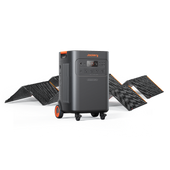











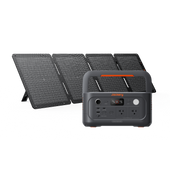



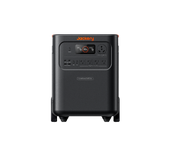
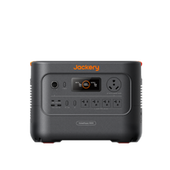





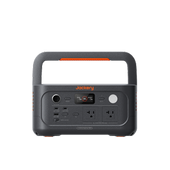





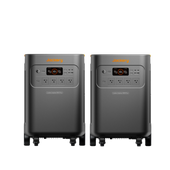
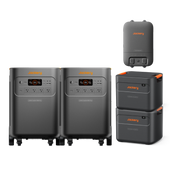





![[Add - on] Jackery Manual Transfer Switch for Explorer 5000 Plus - Jackery](http://www.jackery.com/cdn/shop/files/add-on-jackery-manual-transfer-switch-for-explorer-5000-plus-9017324.png?v=1754016782&width=170)
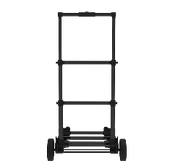
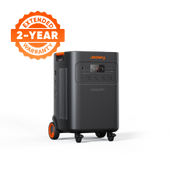
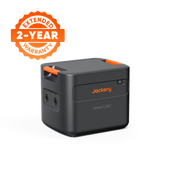
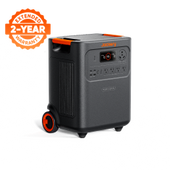
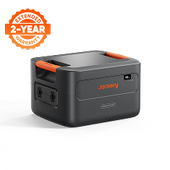
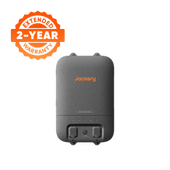



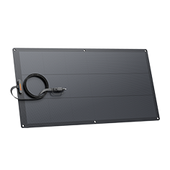
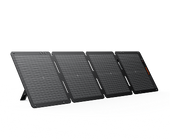




















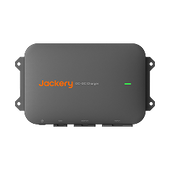




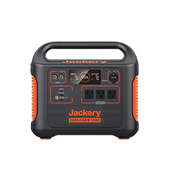






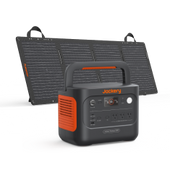
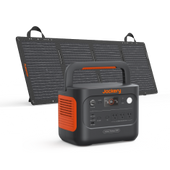






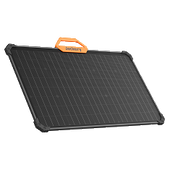


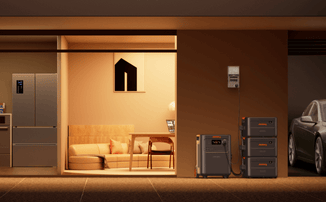














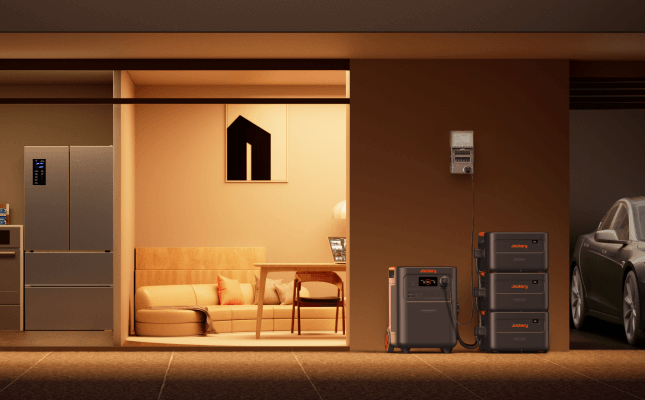


















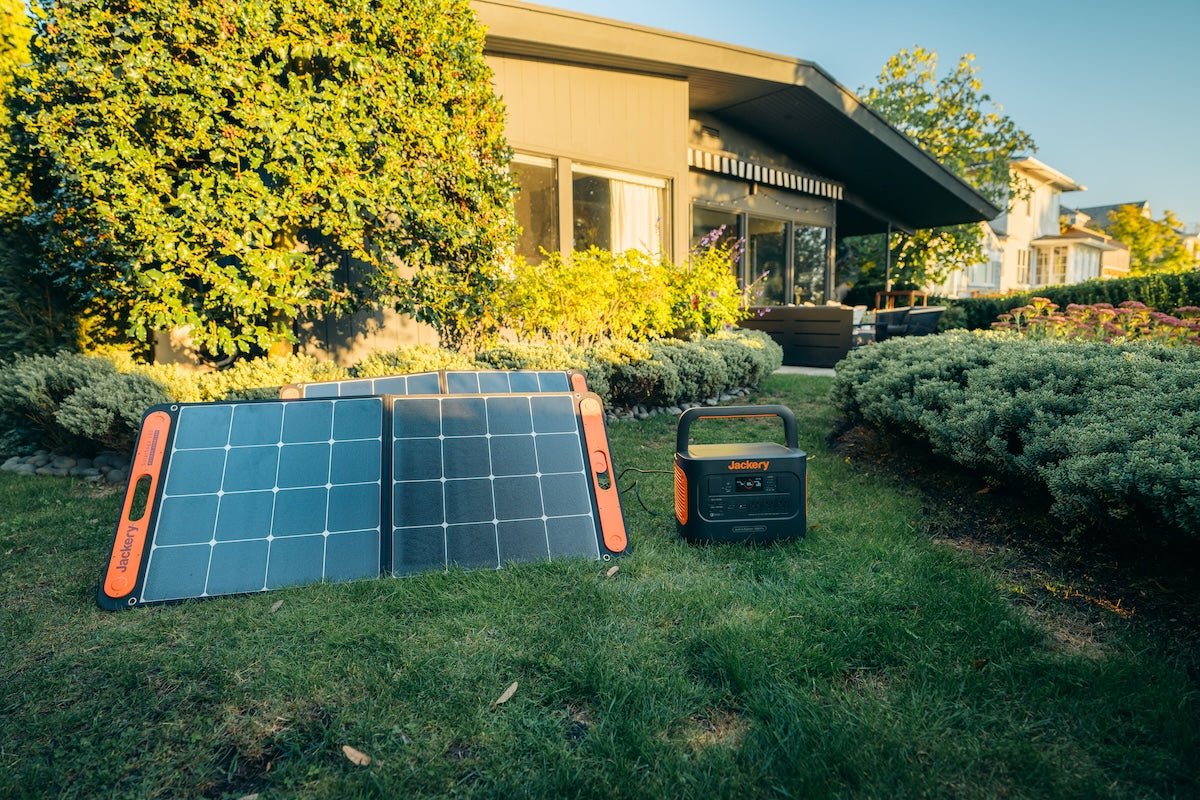







Leave a comment